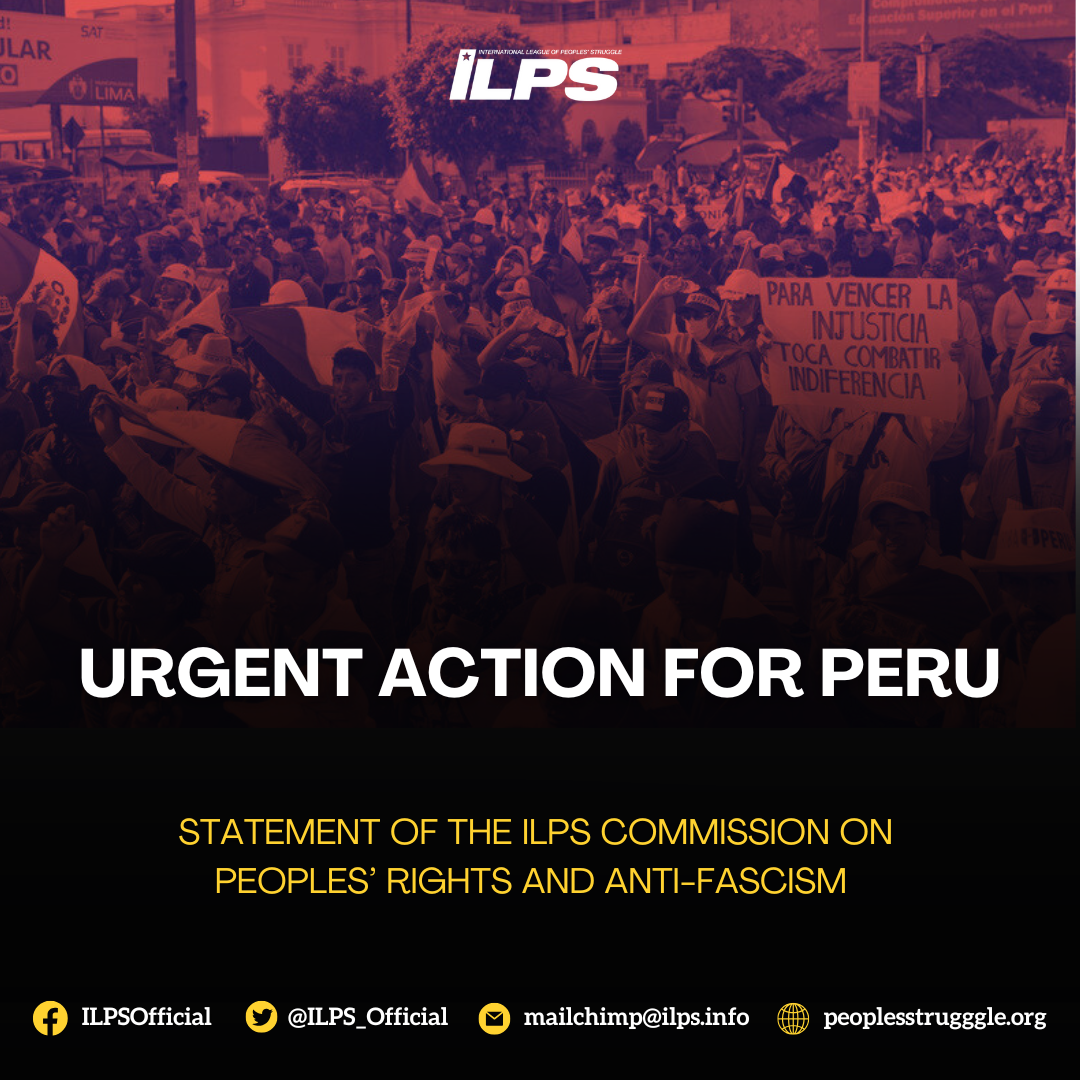#FoodAndRightsNow
Statement of PAN Asia Pacific (PANAP) for the April 15 Global Day of Solidarity for Public Health and Not Private Profit
PAN Asia Pacific (PANAP) joins the Global Day of Solidarity to support the working peoples’ struggle for public health and against private profit in the wake of the COVID-19 pandemic. We join demands to immediately put resources towards people’s needs in order to curb the further spread of the disease and alleviate mass hunger and suffering. We also assert pro-people alternatives as the foundation of our future—one which, unlike the current global capitalist system, will protect the poor and vulnerable such as the farmers and all working peoples, and ensure their most basic rights to food, health, and livelihood.
As several scientific studies have shown, the profit-driven system of capitalist production like in industrial agriculture created conditions for pandemics to break out. This same system that accumulates wealth in the hands of a few through ecological plunder and destruction is not only proving incapable of addressing the urgent needs of those most harshly impacted by COVID-19, including the urban and rural poor. It is also finding more ways for big corporate interests to rake in greater wealth amid this raging public health crisis.
For instance, we find it unconscionable that Croplife Asia, in a media commentary is trying to use the pandemic to further promote the agrochemical industry’s “crop protection products” in the name of food security. The past decades have shown that these products—commercial seeds (including genetically-engineered crops) and toxic pesticides—have destroyed biodiversity, debilitated the health of food producers, and undermined the food sovereignty of communities and nations. There are also concerns in the US that the Trump administration’s $23 Billion stimulus package might be used to bailout large agribusinesses, instead of providing relief to smallholder farms and farmworkers.
Boosting local agricultural production and upholding food sovereignty is the key to ensuring food security during this pandemic and beyond. But big businesses that immensely profit from neoliberal free trade, including in food and agriculture, destroyed the ability of many countries to feed their own people, especially in the underdeveloped countries.
The response to COVID-19 has brought to light the perils of agricultural trade liberalization—as several countries limit or ban food exports, countries that depend on food imports hang in the balance. The solution is not to try to preserve the discredited tenets of “free trade.” Rather, the UN Food and Agriculture Organization (FAO), other international institutions, and governments must finally recognise that neoliberal policies have systematically undermined agricultural development and food security. Policy makers must acknowledge the need to shift towards local food production, led by small farmers who comprise the majority in the Asia Pacific region, to meet domestic needs.
We agree with the FAO that “agroecological approaches provide an immediate solution to the current challenges both by protecting the environment and producers and by enabling the local production of healthy and sustainable food for all.” With the concern that the world would face a food crisis on top of the health, economic and climate crisis, profit-oriented industrial agriculture has to change to a more sustainable food production system. Popular sentiments to “heal Mother Earth” can be concretized by the immediate practice of agroecology, and eventually, the overhaul of the food and agricultural system. It must be emphasized that agroecology goes beyond ecological farming approaches. More crucially, it is part of a movement asserting people’s sovereignty over food production, including effective control over the means to produce food.
We express gratitude to health workers across the globe who are at the frontlines of battling this pandemic—their sacrifices will not be forgotten. But beyond tributes, health workers urgently need safety and protection from their governments. This means the provision of adequate Personal Protective Equipment (PPE), massive support for public health infrastructure, and mass hiring of nurses and doctors with decent wages and hazard pay.
We also thank and recognize farmers, especially small food producers, and other working peoples who have been responsible for bringing food to our tables amid the pandemic. They are facing huge challenges, as lockdowns have badly affected their livelihoods. Movement restrictions should not hamper their essential role in food production, but the past few weeks have shown otherwise—from fishermen in the Philippines being prevented from going to sea, to farmers in India forced to dump tons of their produce because of supply chain disruptions. Food producers must not be punished for producing food. Rather, governments must give them support and ensure that the food being produced does not go waste but is appropriated to feed their nations, especially as the world’s hungry has rapidly multiplied in the face of loss of jobs and livelihoods. Agricultural workers must also be given adequate health protection by employers; their security of tenure must be ensured along with all the economic assistance they need. The most vulnerable of them, the migrant workers and the women, must be given special attention.
PANAP, along with 126 groups in 32 countries, are pushing for the rural peoples’ 5-point demand amid the COVID-19 pandemic. These urgent demands are part of the resounding global call to protect public health, instead of private profit, in these trying times.
It is often stated that the crisis brought about by this pandemic is unprecedented in history. But as history itself has shown, it is moments of profound crisis that are often turned by the working people into great opportunities for social change. Now is the moment for such change. ###
Reference: Sarojeni Rengam, PAN Asia Pacific, Executive Director, [email protected]



